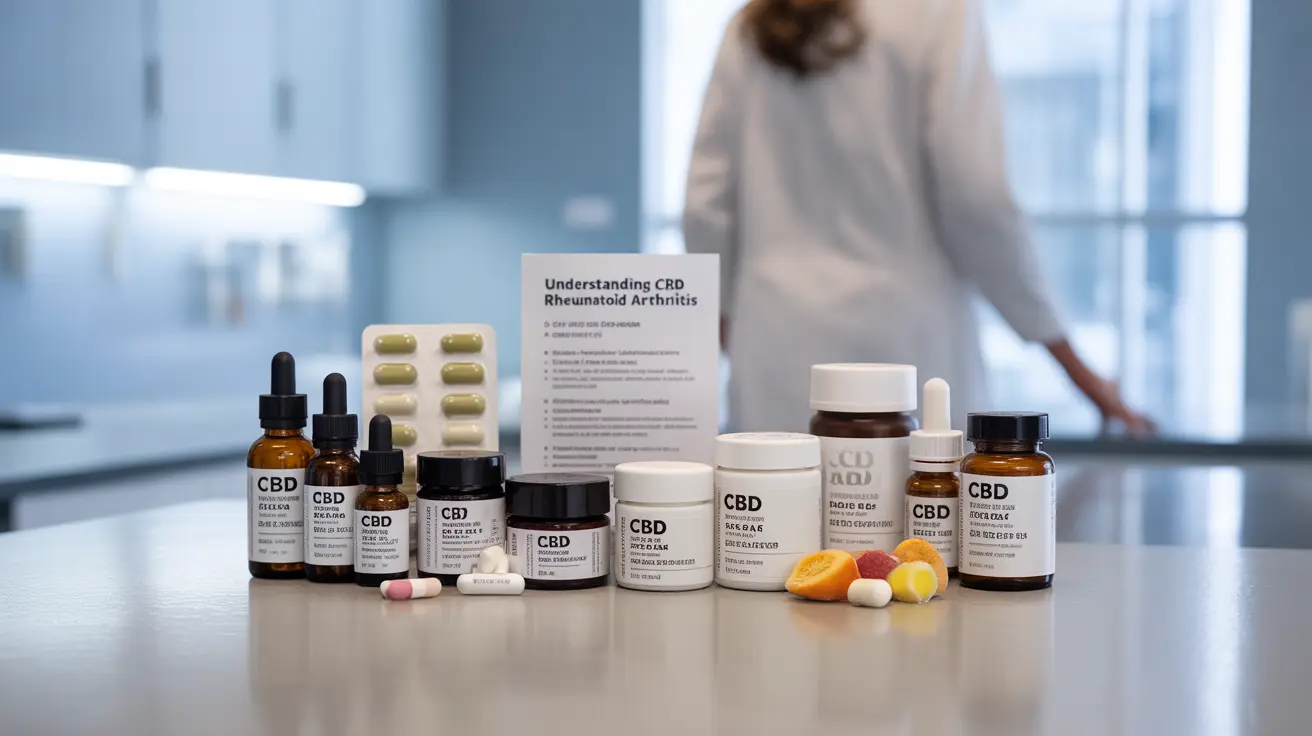Living with rheumatoid arthritis (RA) can be challenging, and many individuals seek alternative treatments to manage their symptoms. CBD, or cannabidiol, has emerged as a potential option for those looking to complement their existing RA treatment plan. This comprehensive guide explores how CBD may help with rheumatoid arthritis symptoms and what current research reveals about its effectiveness.
As interest in natural alternatives grows, understanding the relationship between CBD and rheumatoid arthritis becomes increasingly important. Let's examine the scientific evidence, various application methods, and safety considerations for using CBD in RA management.
Understanding CBD's Role in Rheumatoid Arthritis Management
CBD interacts with the body's endocannabinoid system (ECS), which plays a crucial role in regulating inflammation and immune response. For individuals with rheumatoid arthritis, this interaction may help moderate the autoimmune response that causes joint inflammation and pain.
How CBD Works Against Inflammation
CBD demonstrates potential anti-inflammatory properties through multiple mechanisms. It may help reduce the production of pro-inflammatory cytokines and inhibit certain inflammatory pathways. This action could be particularly beneficial for RA patients, as inflammation is a primary driver of joint damage and pain in the condition.
Available Forms of CBD for Rheumatoid Arthritis
CBD products come in various forms, each offering different advantages for RA symptom management:
- Topical CBD (creams, balms, and lotions)
- CBD oils and tinctures
- CBD capsules and softgels
- CBD edibles
- CBD vape products
Each delivery method has its own onset time and duration of effects. Topical applications may provide targeted relief to specific joints, while oral forms offer more systemic effects.
Safety Considerations and Side Effects
While CBD generally has a favorable safety profile, users should be aware of potential side effects:
- Fatigue or drowsiness
- Changes in appetite
- Digestive system changes
- Potential drug interactions
It's crucial to consult with a healthcare provider before incorporating CBD into your RA treatment plan, especially if you're taking other medications.
Current Research and Evidence
Scientific studies examining CBD's effects on rheumatoid arthritis are still in early stages. While preliminary research shows promise, more extensive clinical trials are needed to fully understand CBD's therapeutic potential for RA. Current evidence suggests CBD may help with pain management and inflammation reduction, but results vary among individuals.
Frequently Asked Questions
What are the potential benefits of using CBD oil for rheumatoid arthritis pain and inflammation? CBD may help reduce joint pain and inflammation through its interaction with the endocannabinoid system. Users have reported improvements in pain levels, reduced morning stiffness, and better sleep quality.
How does CBD oil work to relieve symptoms of rheumatoid arthritis? CBD works by interacting with the body's endocannabinoid system, potentially reducing inflammation and modulating immune response. It may also help regulate pain signaling pathways in the nervous system.
What forms of CBD are available for treating rheumatoid arthritis and how should they be used? CBD is available in topical forms (creams, balms), oils, capsules, edibles, and vape products. Topicals can be applied directly to affected joints, while oils are typically taken sublingually. The choice of form depends on individual preferences and symptoms.
Is CBD oil safe to use for rheumatoid arthritis, and what side effects should I be aware of? CBD is generally considered safe, but side effects may include fatigue, changes in appetite, and digestive issues. It's essential to purchase from reputable sources and consult healthcare providers, especially regarding potential drug interactions.
What does current research say about the effectiveness of CBD for rheumatoid arthritis management? While preliminary research shows promise, clinical evidence is still limited. Some studies suggest CBD may help with pain and inflammation, but more comprehensive research is needed to establish definitive effectiveness for RA treatment.
Before starting any new treatment, including CBD, always consult with your healthcare provider to ensure it's appropriate for your specific situation and won't interfere with your current medication regimen.




